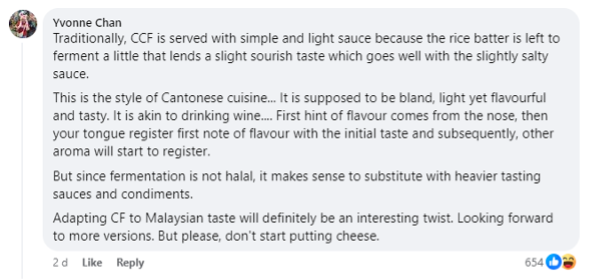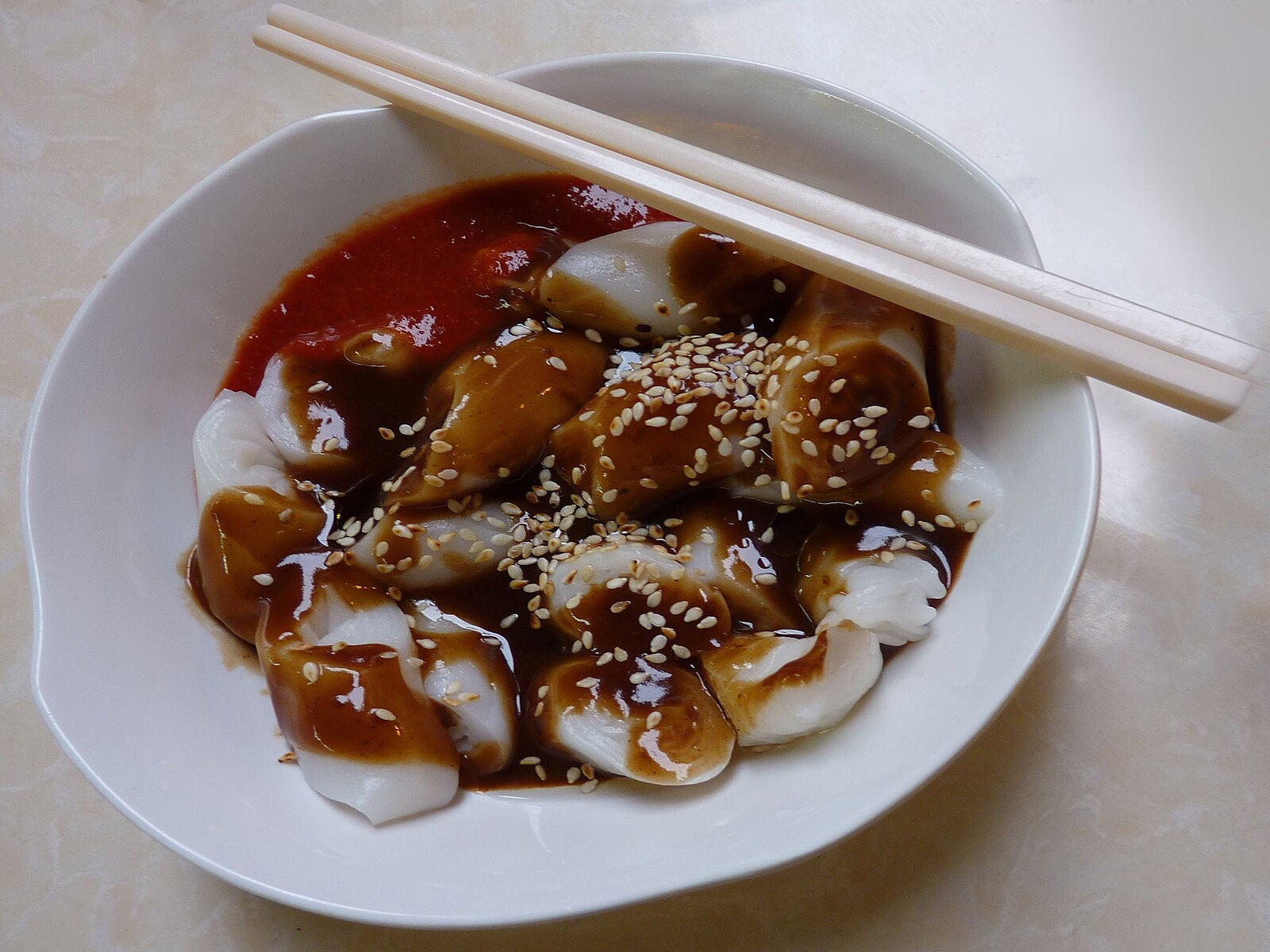MALAYSIANS love to eat. Gorging and gluttony are unashamed national characteristics.
Given that a sizeable demographic requires food to be halal, there is a large portion of Malaysian culinary delights that are unavailable to them.
This is just a business opportunity that is screaming to be exploited, and one young lady has risen to the challenge with her halal Hong Kong-style chee cheong fun.
For the uninitiated, these rice noodle rolls are a typical Cantonese dish originating from Guangdong Province in southern China, commonly served as either a snack, small meal or variety of dim sum. It’s a thin roll made from a wide strip of steamed rice noodles, filled with shrimp, beef, vegetables, or other ingredients. Seasoned soy sauce is poured over the dish upon serving.
Featured on popular food review site KL Foodie, the young proprietor says Malays love chee cheong fun but find it difficult to find halal versions. She was inspired to start the business after a Chinese friend, who also sells chee cheong fun (but the non-halal variety), egged her on and taught her to prepare the delicacy.
The stall based in Puchong sells four varieties of chee cheong fun – plain, parwn, chicken and beef. Customers can opt to mix the fillings as well. The reviewer who visited the stall gave the thumbs up, stating how light and fluffy the steamed rice noodles were while noting the generous fillings in each serving.
The Facebook post has received 23k ‘likes’, 2.1k comments and 3.3k shares, underscoring the popularity of this traditional Chinese dish. This is a sample of the comments.




A few commenters gave a little explanation of Cantonese culinary traditions, explaining why perhaps this young lady used “heavier” sauces in her dish since fermentation is not halal.


Another person advised changing the name to avoid confusion or courting unnecessary controversy.

One foodie observed that this halal version was packed with filling, unlike the kedekut Chinese versions.

Another person seconded that opinion, saying it really looked value-for-money.

Some netizens had noted that in a previous video, the young cook struggled somewhat and the chee cheong fun was laden with holes, prompting some to offer useful tips.



This helpful attitude was noted by another netizen who said there was nothing wrong with continuous learning to keep improving.

One netizen hoped that such cross-pollination of cuisines would lead to new varieties and unique flavour combos to further entice the always-hungry Malaysian.

There are a few things to note about this post.
Firstly, the business opportunities are abundant and crying out to be filled. The success of mee tarik shoppes is but one example of Chinese cuisine making a successful cross over.
Secondly, as pointed out by many of the comments, this modifying of cuisine to suit different palettes is a great Malaysian tradition. Think nyonya cuisine and that alone underlines the value of such localisation.
Thirdly, the spirit of muhibbah is well and truly alive. The sharing of culinary know-how between the Chinese and Malay friends has allowed the latter to venture into the FnB business.
One comment perhaps best summed up the overall positive sentiment highlighting how food can be the gastronomic glue that binds us together as a nation. Hear, hear!

For those wanting to sample Halal Hong Kong CCF, head over to:
Medan Selera MBSJ, Taman Tasik Puchong Perdana, 47100 Puchong
Operating hours: 11am-4pm (closed on Sunday). – June 28, 2024
Main photo credit: wikimedia









